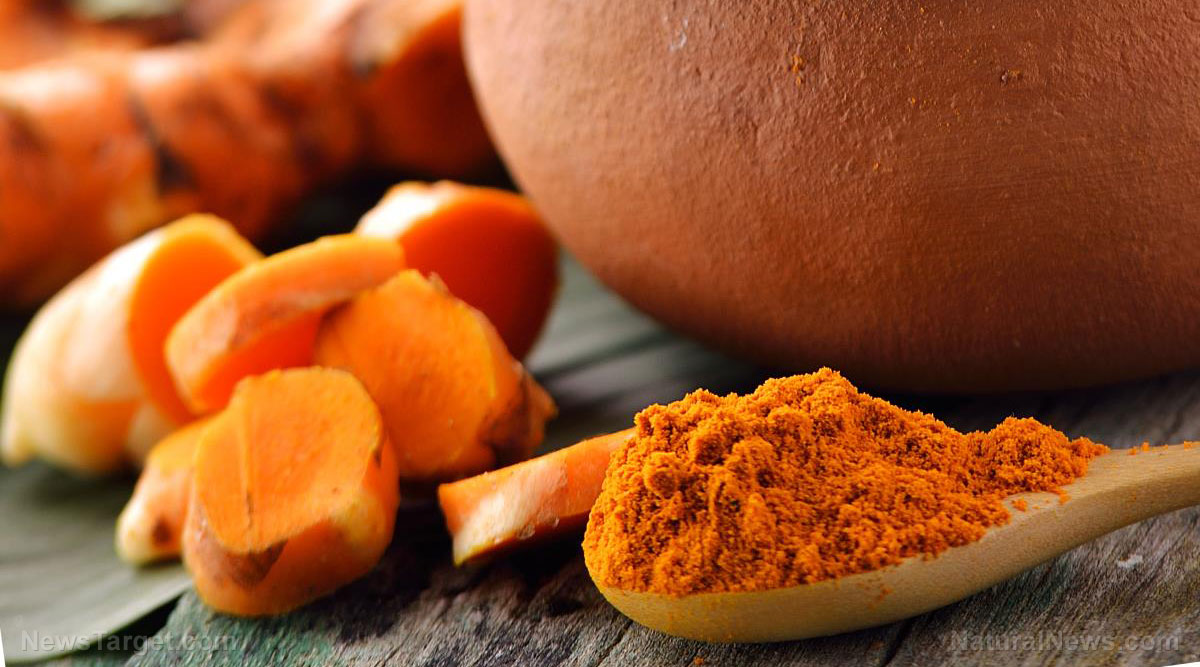Turmeric, despite its MANY health benefits, still isn’t considered medicine by the FDA … thanks, Big Pharma
09/04/2020 / By Divina Ramirez

Research on the specific health benefits of turmeric, the golden spice from India, is far from limited. Findings from animal studies, test-tube studies and human clinical trials indicate that turmeric can confer a long list of health benefits.
But despite the tremendous amount of data in support of turmeric’s health-promoting effects, turmeric is just “generally recognized as safe” (GRAS) as a food ingredient by the U.S. Food and Drug Administration (FDA).
This means that although the FDA has greenlighted turmeric for general consumption, healthcare professionals still cannot prescribe it in place of mainstream medicines. Experts think this might be due to a number of reasons, none more significant than outrageous economic factors.
Getting FDA-approved is an expensive process
Most people across the U.S. are no strangers to labels like “FDA-approved” and “off-label use.” These are terms one often encounters on the labels of food products and pill bottles being sold both in-store and online.
As a federal agency, the FDA is tasked to protect public health by assessing the safety and efficacy of drugs, medicines, food ingredients and other biological products for use or consumption. For this reason, the FDA has standards and requirements in place that food companies and drug manufacturers need to conform to before introducing their products to the market.
That being said, most products do not need prior approval from the FDA before being marketed in the U.S. However, the FDA might require food companies and drug manufacturers to undergo the long, tedious and expensive approval process if their products use new ingredients or substances.
Turmeric, a spice made from the Curcuma longa plant, is far from being a chemical food ingredient or a recent lab creation. It also does not lack for extensive empirical evidence for each one of its reported health benefits, and experts have time and again attested to turmeric’s lack of side effects.
These qualifications have earned turmeric a spot on the FDA’s list of GRAS substances. The GRAS designation is conferred on a substance if enough qualified experts agree that it is considered safe for its intended use.
This designation might be a huge step in the right direction for holistic medicines like turmeric, but it doesn’t mean that healthcare professionals can start prescribing turmeric as a “legitimate” medicine.
Experts also think it might take some time before medical establishments and institutions can start using turmeric or holistic medicines, for that matter, just as much as mainstream medications.
For one thing, the FDA approval process requires the manufacturer or producer to conduct extensive lab, animal and human clinical trials and submit data from these trials to the FDA.
But this is easier said than done as tests require funding. In fact, the final cost of bringing one product to the market depends on a number of factors, including the time needed to obtain treatments, the number of subjects enrolled in each phase of the clinical trials and the time needed for data assessment, among others. Each one of these can use up large amounts of funds.
Various sources also indicate that it can cost more than one billion dollars to bring just one product to the market. Other sources claim that producers and manufacturers need to shell out another 50–840 million dollars in order to bring treatments through the stages of basic or pre-clinical research. The succeeding trials can then cost another 50–970 million dollars.
Turmeric can “harm” drug companies
Given the large sum of money involved, some critics suspect that the entire process is profit-driven. The FDA grants exclusive marketing rights upon the approval of a drug to protect it from generic versions or non-patented substances that fulfill the same purpose as the drug.
But cheap and accessible non-patented substances like turmeric can make it difficult for major drug manufacturers to generate a high return on investment (ROI) or profit from their products. If people can just use turmeric itself instead of drugs designed to replicate its effects, then those drugs might become obsolete.
Turmeric has garnered much interest from both scientists and healthcare professionals alike because of its reported health benefits. But despite its science-backed medicinal properties, it doesn’t look like it is going to enter the drug market anytime soon. (Related: The six health benefits of turmeric.)
Read more articles about turmeric and its numerous health benefits at Turmeric.news.
Sources include:
Submit a correction >>
Tagged Under:
This article may contain statements that reflect the opinion of the author
RECENT NEWS & ARTICLES
COPYRIGHT © 2017 SUPER FOODS NEWS





















